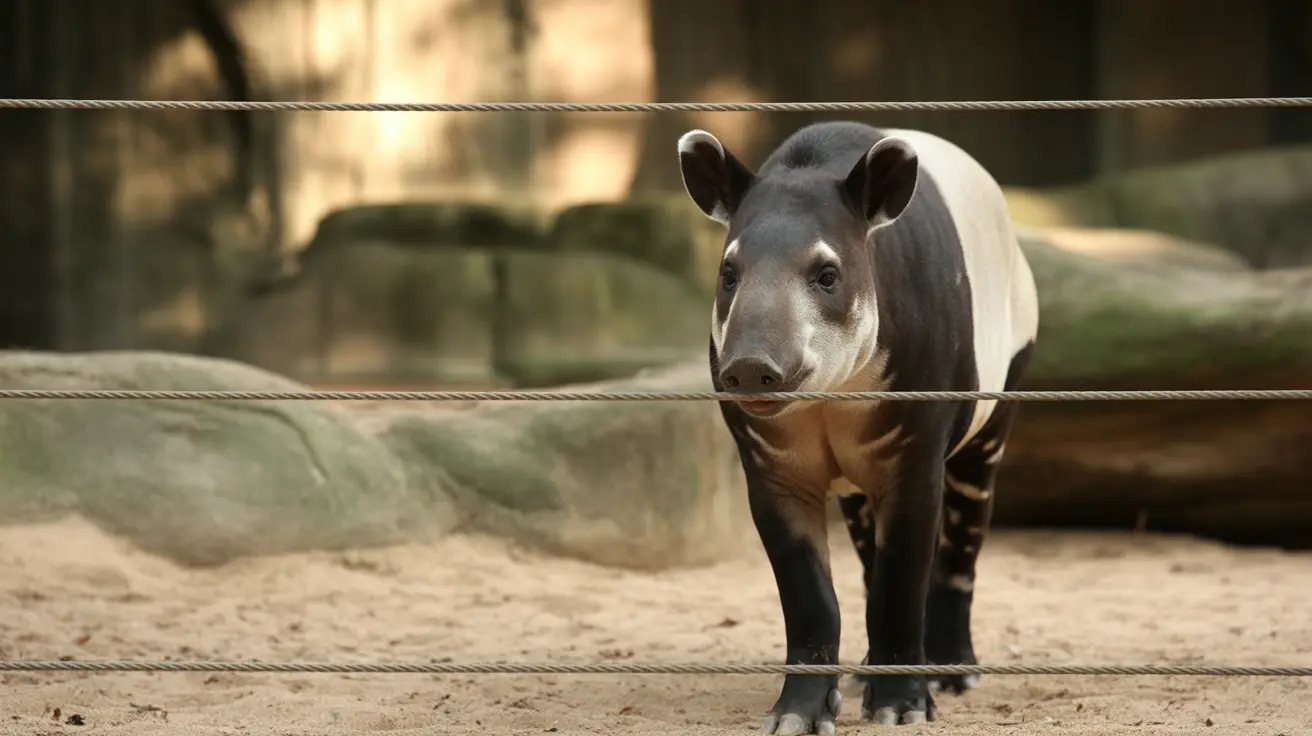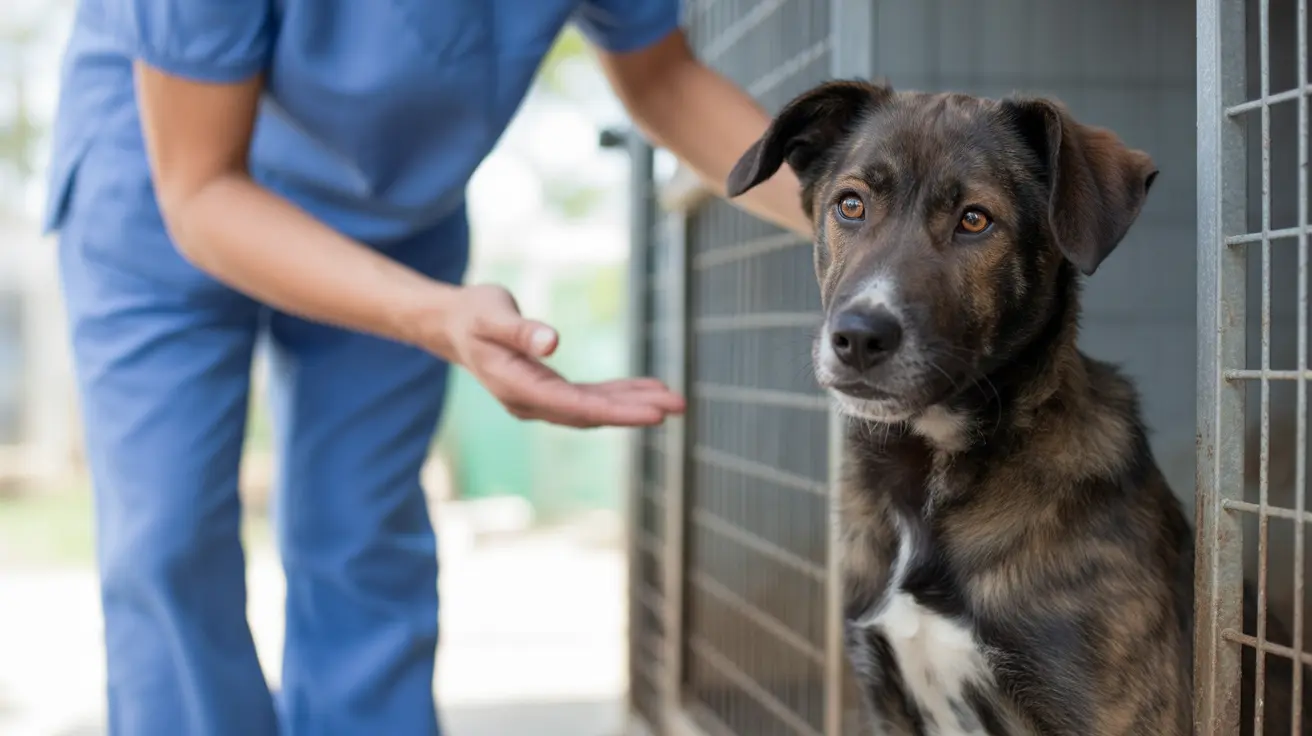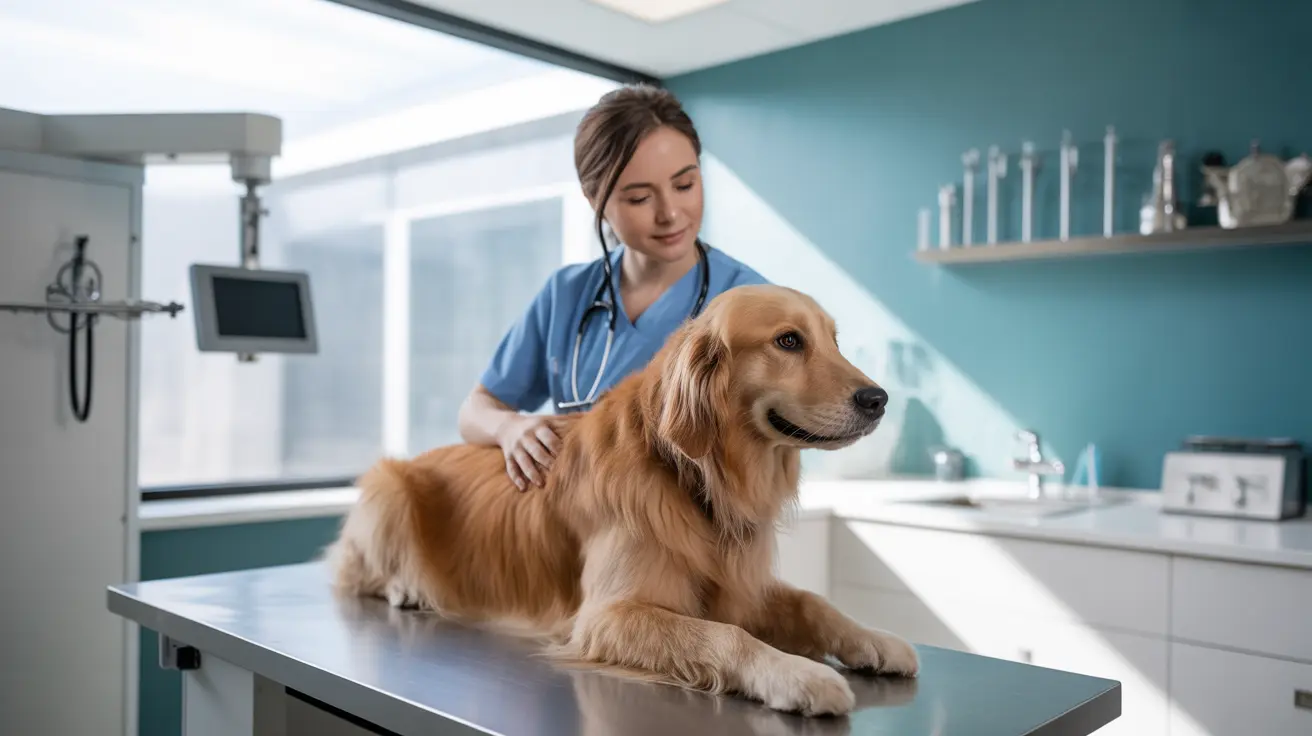When it comes to raising a healthy puppy, dealing with digestive issues can be one of the most challenging aspects of pet parenthood. Puppy diarrhea, while common, requires careful attention and understanding to ensure your young companion's well-being. This comprehensive guide will help you navigate the causes, symptoms, and effective treatments for this frequent health concern.
As a pet owner, recognizing that puppy diarrhea can range from a mild, temporary condition to a serious health emergency is crucial. Whether caused by dietary indiscretion, infections, or stress, understanding how to respond appropriately can make a significant difference in your puppy's recovery and overall digestive health.
Common Causes of Puppy Diarrhea
Understanding the root causes of puppy gastrointestinal issues is essential for effective treatment and prevention. There are several primary factors that can trigger diarrhea in puppies, and identifying them can help guide your response and care strategies.
Dietary Factors
Many cases of puppy diarrhea are linked directly to what your puppy eats. Sudden changes in diet can upset their sensitive digestive systems. Puppies are naturally curious, and exploring the world often means putting new things in their mouths, which can include inappropriate foods or even foreign objects. Additionally, food sensitivities or allergies can also spark gastrointestinal upset.
- Sudden puppy diet changes
- Introduction of new treats
- Consuming inappropriate foods or foreign objects
- Food sensitivities or allergies
Medical Conditions
Infections—both bacterial and viral—are a significant cause of puppy diarrhea. Intestinal parasites such as worms (including Giardia and Coccidia) are common in young dogs and may require veterinary treatment. Sometimes, vaccinations can lead to temporary digestive upset, and some puppies may suffer from more persistent conditions like inflammatory bowel diseases.
- Bacterial and viral infections
- Internal parasites (worms, Giardia, Coccidia)
- Puppy vaccination side effects
- Inflammatory bowel conditions
Environmental Factors
Environmental stresses are often overlooked but can play a major role in digestive health. Changes in a puppy’s surroundings, routines, or exposure to toxins can contribute to the development of diarrhea. Stress, anxiety, and inadequate hygiene are significant environmental risks.
- Stress and anxiety
- Changes in routine or environment
- Exposure to toxins
- Poor hygiene conditions
Identifying Puppy Diarrhea Symptoms
Early recognition of diarrhea and its associated symptoms is vital for providing timely and effective care. By monitoring your puppy closely, you can intervene before complications arise.
Physical Signs
Be observant of the appearance and consistency of your puppy’s stool. Physical signs may include:
- Changes in puppy stool color, such as unusually light or dark shades
- Increased frequency of bowel movements compared to normal
- Straining or difficulty during defecation
- Blood or mucus present in the stool, signaling possible infection or irritation
Behavioral Changes
Beyond what you see in the litter box or yard, behavioral changes can indicate your puppy is not feeling well:
- Lethargy or reduced activity levels
- Decreased appetite or reluctance to eat
- Increased thirst, which can accompany fluid loss from diarrhea
- Visible discomfort, such as whining, restlessness, or seeking unusual places to rest
Treatment Approaches
The key to effectively treating puppy diarrhea lies in assessing severity and choosing the most appropriate action—either home management for mild cases or immediate veterinary attention for more severe symptoms.
Immediate Home Care
For mild and non-severe cases, begin with home care tactics to help your puppy recover:
- Temporary food withdrawal for 12-24 hours (only for puppies older than 8 weeks, and never withhold water), allowing the digestive system to rest
- Gradual introduction of bland, easily digestible foods such as boiled chicken and rice
- Maintaining proper hydration with fresh water available at all times, as diarrhea can lead to dehydration
- Careful monitoring of stool consistency, frequency, and any additional symptoms to assess improvement or deterioration
Professional Medical Care
For more serious symptoms or if the diarrhea persists, contact your veterinarian promptly. Seek professional help if you notice:
- Symptoms persisting longer than 24 hours
- Signs of severe dehydration, such as sunken eyes, dry gums, or skin tenting
- Presence of blood or excessive mucus in diarrhea
- Concurrent vomiting, weakness, or significant behavioral change
Prevention Strategies
Preventing puppy diarrhea is largely about creating a stable, healthy environment and taking proactive steps in nutrition and health maintenance. Prevention helps minimize future health issues and fosters a happier, more resilient puppy.
Dietary Management
Build good dietary habits and practices to minimize digestive upset:
- Consistent feeding schedules to maintain digestive regularity
- Providing high-quality, puppy-appropriate food plans
- Gradual transitions when introducing new foods to avoid shocking the digestive tract
- Offering limited, healthy treats and avoiding giving table scraps or inappropriate foods
Health Maintenance
Puppies’ health depends on preventive care routines:
- Scheduled vaccinations to protect against infectious diseases
- Parasite prevention through regular deworming and flea/tick control plans
- Regular veterinary check-ups to monitor overall health and catch issues early
- Practicing proper hygiene, including regular cleaning of feeding bowls, living areas, and bedding to reduce exposure to potential pathogens
Frequently Asked Questions
- What are common causes of puppy diarrhea?
- Puppy diarrhea often results from changes in diet, parasites, infections, or emotional stress related to changes in the household or environment.
- When should I worry about my puppy's diarrhea?
- If diarrhea lasts more than 24 hours, is accompanied by blood, or your puppy seems lethargic or unwell, you should contact your veterinarian immediately as these could be signs of a more serious issue.
- How can I treat mild puppy diarrhea at home?
- For mild cases, temporarily withhold food (but not water), and after a short fasting period, offer bland foods like boiled chicken and rice in small portions. Always ensure fresh water is available.
- Can puppy diarrhea resolve on its own?
- Mild cases often improve within a day or two when managed carefully at home, but ongoing monitoring is essential to ensure the puppy doesn’t become dehydrated or develop worsening symptoms.
- What foods are safe for a puppy with diarrhea?
- Plain boiled chicken, white rice, and in some cases, small amounts of canned pumpkin (plain, not pie filling) are gentle on the stomach and may help recovery.
- Should I let my puppy drink water during diarrhea?
- Yes, keeping your puppy hydrated is critical. Offer clean, fresh water at all times to prevent dehydration from fluid loss.
- Can stress cause diarrhea in puppies?
- Absolutely. Major changes such as moving homes, new pets, or changes in the family can stress a puppy and sometimes manifest as digestive upset.
- Are probiotics helpful for puppy diarrhea?
- Probiotics can aid in restoring healthy gut flora but should only be given after consulting with your veterinarian to ensure they’re suitable for your puppy.
- How long does puppy diarrhea usually last?
- Uncomplicated cases typically resolve within 1–2 days if the underlying cause is addressed and the puppy responds well to initial care strategies.
- When is diarrhea in puppies a veterinary emergency?
- If your puppy shows signs of blood in feces, persistent vomiting, weakness, or dehydration, seek veterinary care immediately, as delays can be life-threatening.
Managing puppy diarrhea effectively requires a balanced approach of careful monitoring, appropriate home care, and timely veterinary intervention when necessary. By staying informed and proactive, you can help ensure your puppy maintains optimal digestive health and recovers quickly from any gastrointestinal issues that may arise.






